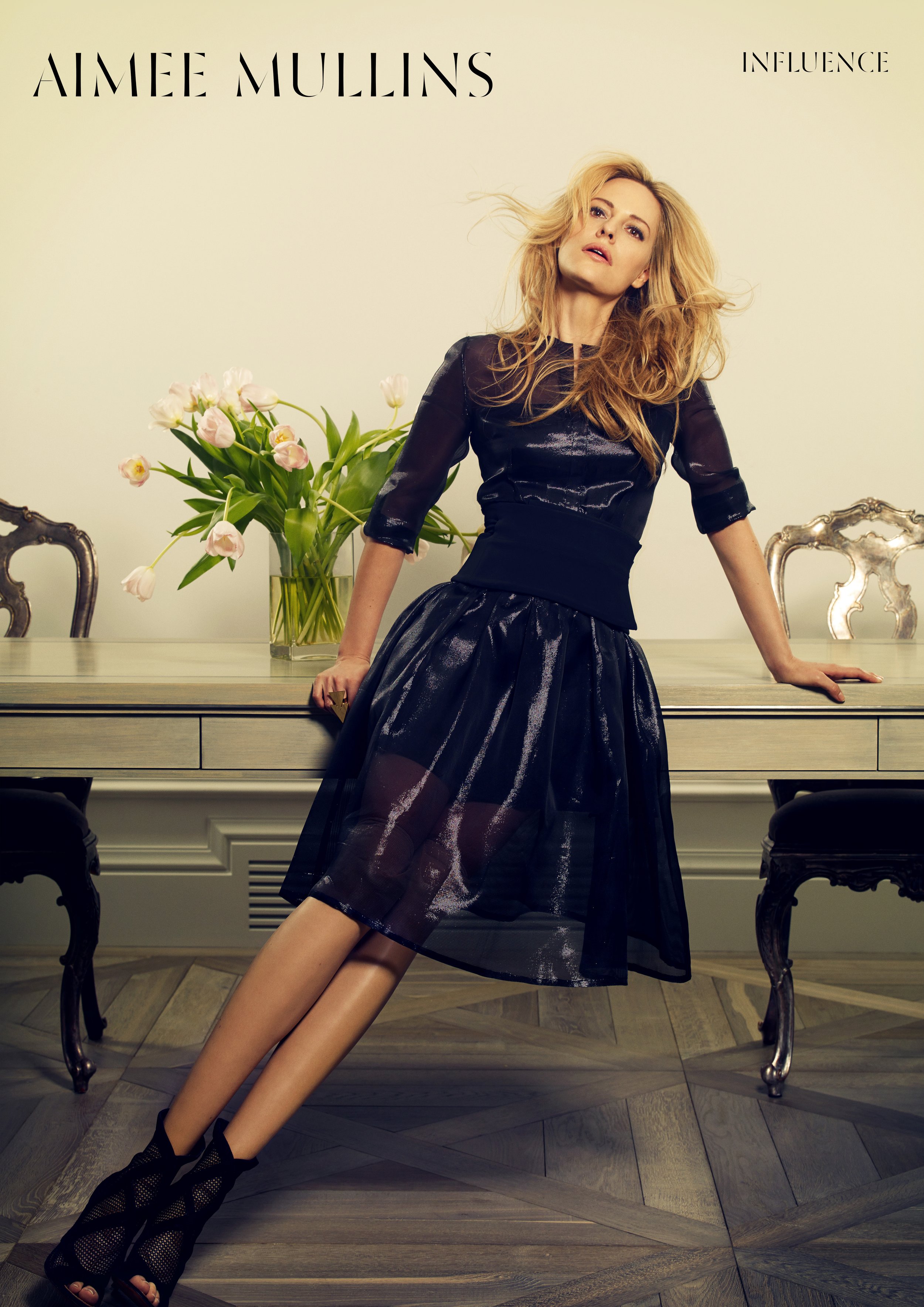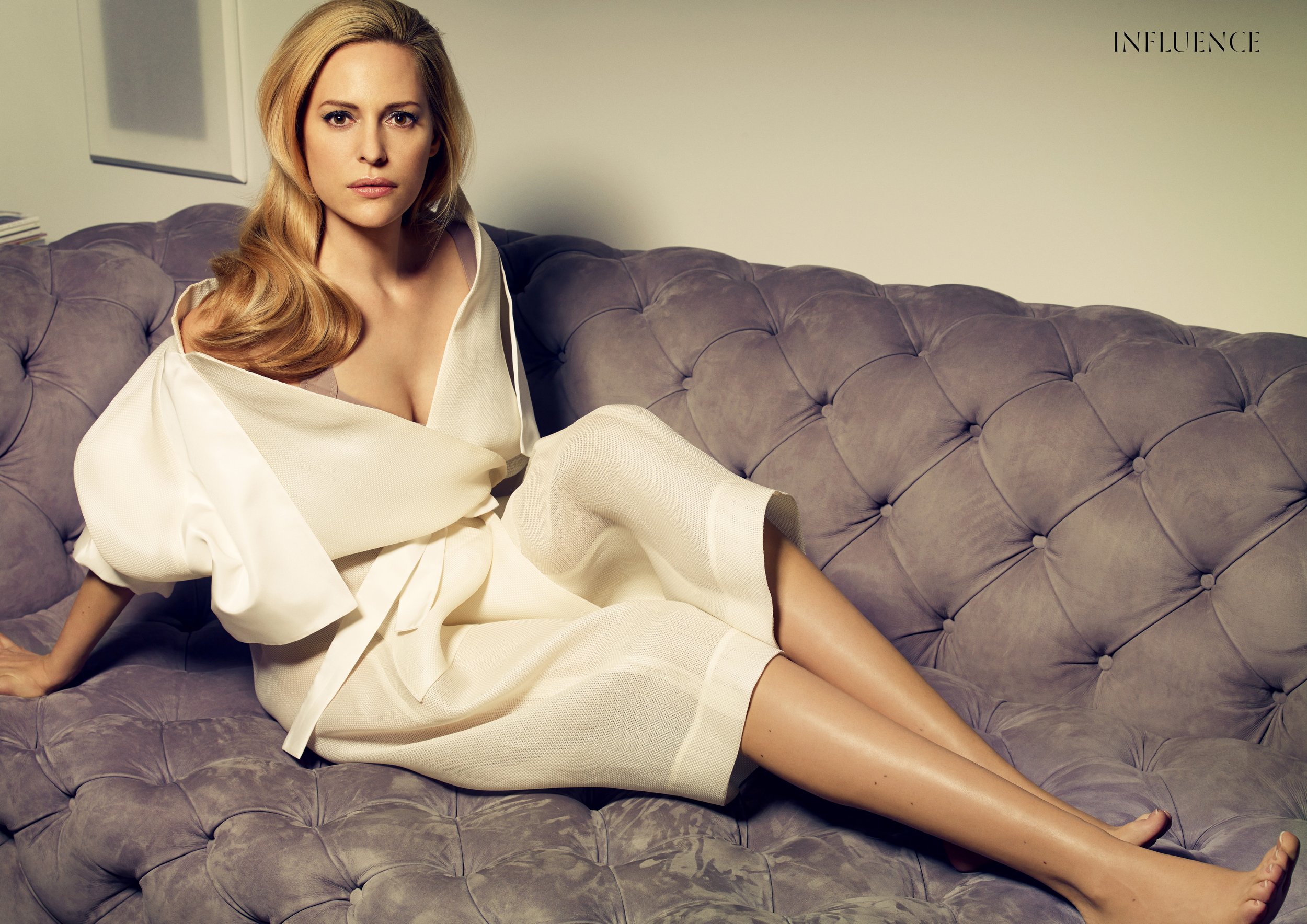Natural Beauty: Aimee Mullins
The inimitable face of L’oreal tells us why it’s important to remember that we are living in the greatest possible moment in history
These are the words of the gay black novelist and counterculture hero James Baldwin – and they are words that seem to have more pointed resonance in today’s society than at any other time in history. As women across the Middle East suffer unthinkable violence at the hands of extremism, it feels more prescient then ever to shine a light on those rare souls who have devoted a lifetime to empowering women and deconstructing the structural foundations of the status quo, and there a few more inspirational figures in that contemporary paradigm than the inimitable Aimee Mullins. Aimee has been a global ambassador for L’Oreal for five years and her achievements are countless beyond the fashion sphere. Born with a condition that meant she became an amputee at the age of one, she has become a beacon of resilience the world over, achieving more than most people ever dream of – excelling in the fields of sport from a young age and radically re-defining perceptions of both ability and beauty the world over. It was as a muse to Alexander McQueen that she made her catwalk debut on a pair of hand-carved wooden legs in the late-90s in a show that still resounds as a pivotal, and arguably unequalled moment in the canon of fashion history; a turning point that changed the game entirely not only in her life, but in the lives of so many who felt empowered by her explosive fashion debut. Here, she tells AUTHOR why we all have a responsibility to reflect upon the present as one of the most exciting times to be alive.
“I remember when I was in university doing a history major and our professor had to go around the room and say ‘if we could’ve lived any other time or place, when would it be, and why?’ We got to this woman in the class and she just said ‘I’m black and a female, and this is the best possible time for me to be alive.’ I never forgot that, because I thought, ‘ If I was born a hundred years ago, I know my personality would be the same, but my opportunity would not.’ The incredible benefit of the globalization of social media is that it is expanding opportunity even more. There is still a lot of imagery out there that is very limiting when it comes to perceptions of beauty, of course, but we’ve come a long way. When you’re looking at a culture that discriminates against many things, but predominately your body – if you became an amputee or paralyzed, you won’t get a job, they won’t hire you – then the fact that for five years now I have been a face of the biggest beauty brand in the world is a sign of progress. It has come seventeen years after Alexander McQueen asked me to do his show, but because of the amount of imagery online now, the amount of time it takes for people to get their head around ‘this is also beautiful’ is diminishing more and more. It feels like real acceptance is happening in society on so many levels. And even if it’s not total acceptance yet, it feels like more people are taking a chance. You just have to look at the transgender campaign at Barney’s that Dennis Friedman did or the impact of Caitlin Jenner to see that happening, and in all these examples, pop culture is the crucial agent for change. I mean, if you looks at a long-running show like 24 where you had ‘the hero’ running around risking his life to save a black president – well, I think that really helped Obama get elected. It’s like the idea of Hilary, or the idea of any woman now becoming a president is not odd because we’ve had enough pop culture pave the way; enough film and television where it’s taken as an absolute reality in its fictional credits.”
CREDITS
By John-Paul Pryor
Picture by Marlena Bielinska



